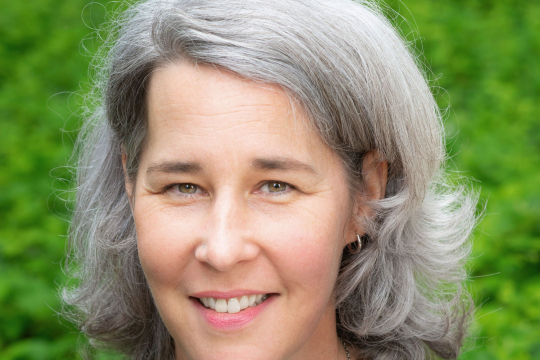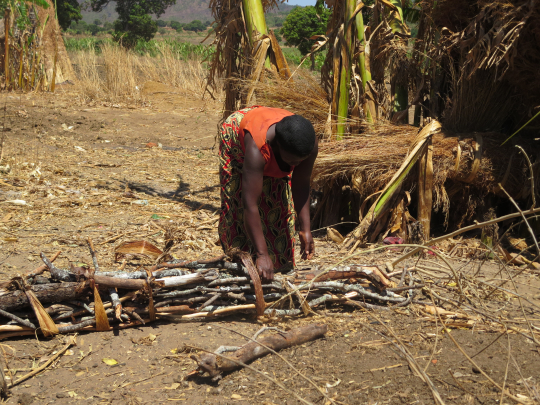She has spent many years doing research in Africa on energy access. She is a Professor in the School for Environment and Sustainability at the University of Michigan and one of the founders of EfD’s WinEED program (Women in Environmental Economics for Development). Meet one of the eminent keynote speakers at EfD’s Annual Meeting in September, Pam Jagger!
What will you be talking about in your keynote presentation?
I will talk about what my research group has learned about the state of energy access and how to improve it during 15 years of research in Uganda, Zambia, Malawi, and Ghana. I’ll talk specifically about what we’ve learned about energy poverty, demand and supply side factors that drive the adoption of clean fuels and energy technologies, and what impacts we observe when people have a change in their energy access status. I’m also very interested in issues related to the scale-up of successful policies and programs and how we can overcome the barriers that very poor households face when it comes to improving energy access.
My research group has interacted with policymakers, private sector firms, and organizations. In general, after building some trust, they have been very willing to partner with us, which has been a great pathway for policy impact. Those partnerships come with some challenges though, for instance, when firms go out of business or when you are dependent on the whims of donors, chiefs, and others who have priorities that are not perfectly aligned with research objectives. I believe it is worth it though – to understand how real-world policies, programs, and projects work, and how to bring them to scale if they are successful.
What aspects of energy access do you find most interesting?
I am particularly interested in the problem of energy poverty and how it overlaps with extreme poverty in most settings. Solving the problem of energy poverty is particularly challenging because poor households typically don’t have the assets, social capital, and other dimensions of capital to lift themselves out of energy poverty. Economics often focuses on market-based strategies, but such approaches are often not the best way to reach the poorest people.
How can you reach those people instead?
The Government of Malawi has implemented an interesting program that leverages targeting for their social cash transfer program. Ultra-poor households that receive cash transfers were also given a fully subsidized improved cookstove. In collaboration with faculty at the Lilongwe University of Agriculture and Natural Resources, we did a multi-year impact evaluation of this program and found very good overall results. Adoption rates were very high, households prepared an increased number of cooked meals, suggesting a food security benefit, and non-poor households in the study treatment communities observed the benefits of the improved stoves and purchased those for themselves without subsidies.
How is energy poverty affected by current crises such as the war in Ukraine and the pandemic?
The biggest impact I have observed so far is supply chain disruptions for clean fuels and technologies. For example, many solar home systems and clean cooking technologies are manufactured in China and shipped to Africa. The increased fuel prices are affecting both the cost of clean fuels in countries that have access to them but are also affecting the costs of transportation and distribution of a wide range of energy access technologies and fuels. Those crises are strikingly hard on the poor as they put clean energy goods and services further out of their reach.
What made you interested in economics in the first place?
I started out studying Botany at the university. Then, on a whim, I took a class in microeconomics and had a very good professor. I got my undergraduate degree in environmental economics, in a traditional economics department, but felt that was a bit too theoretical for me. So my master’s is in agricultural and resource economics – more specifically forest economics. This opened my eyes to the practical application of economics, which is what I really liked. I particularly like designing research that provides data that did not previously exist and raises the profile of the environment in human well-being.
What are you especially proud of in your career?
I run a program in the School for Environment and Sustainability at the University of Michigan for post-docs and Ph.D. students that focuses on professional development including training on diversity, and equity, preparing for the job market, and how to be good collaborators and community members. There was no such program so I started one.
I’m also proud of the work I have done together with local research partners and field teams over the many years I’ve been doing research in both Uganda and Malawi. We have built solid collaborations with our partners and I have also worked a lot with junior researchers in those countries. The EfD strategy of building capacity and contacts over the long run in the countries where environment and development research is taking place is very important.
Is there something you would like to say regarding WinEED?
In my interactions with the EfD centers, I find that many people are uncertain about how to engage with WinEED. WinEED has two main objectives; supporting the careers of junior female scholars within and beyond the EfD network, and building the capacity to do state-of-the-art environmental economics research with a focus on gender issues. The network has a long way to go in including the gender perspective in research. We need to help the centers find out how to engage with WinEED. EfD has good plans for this though, and we are just starting to see the potential of WinEED.
If you could send just one message to the world’s leaders, what would that be?
They need to focus on inequality. The world has done a very bad job addressing the gap between the poorest and those who are better off. There is a growing gap between the poorest and the richest. In the wake of Covid-19 and the war in Ukraine, we are observing increases in poverty that we haven’t seen in many years. Many things are pushing us backward right now. We need to address that.
By: Petra Hansson

